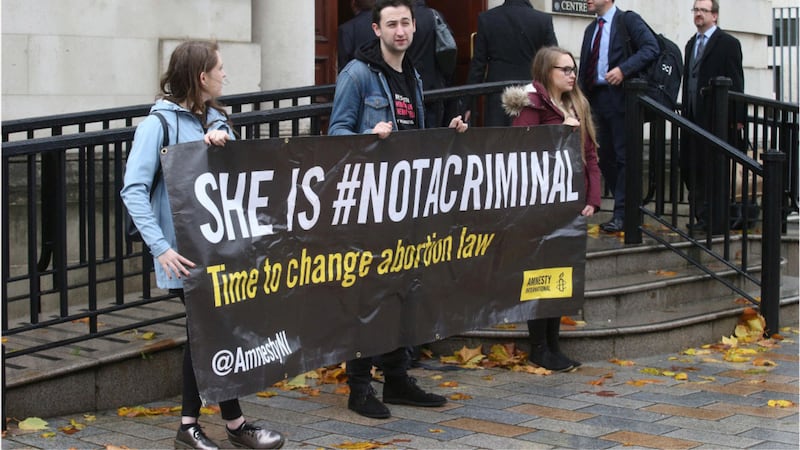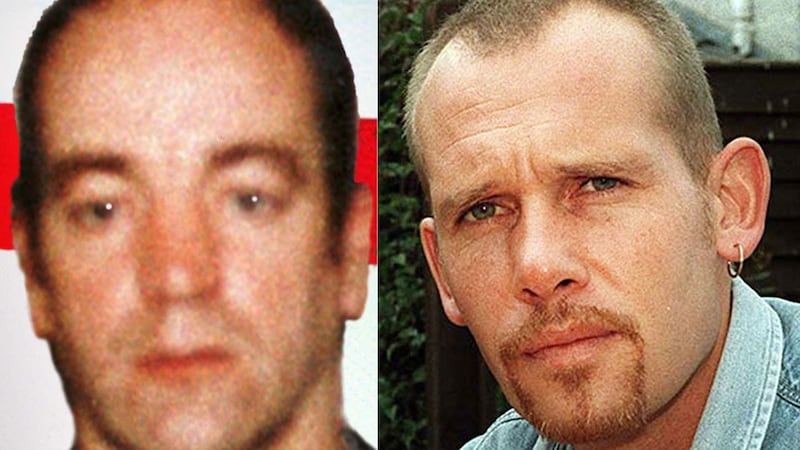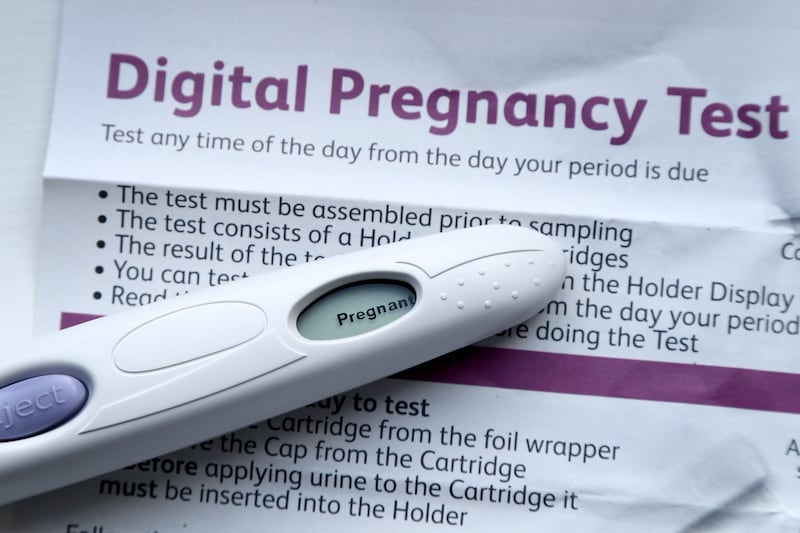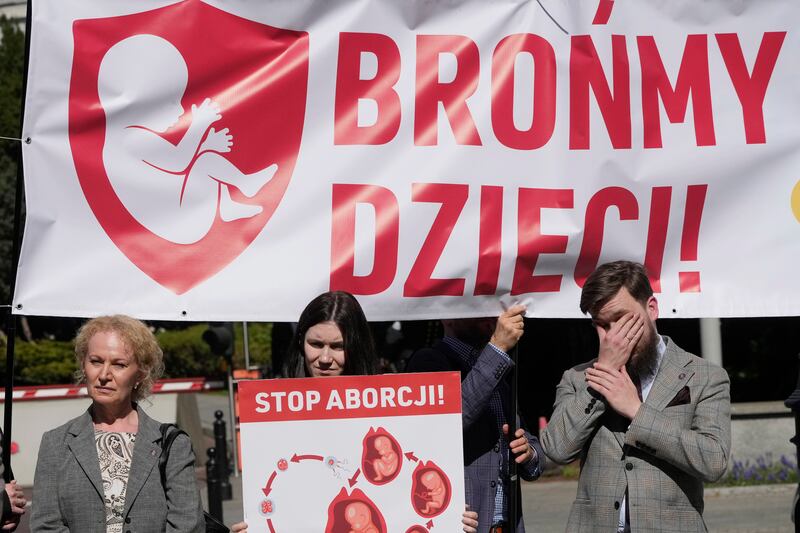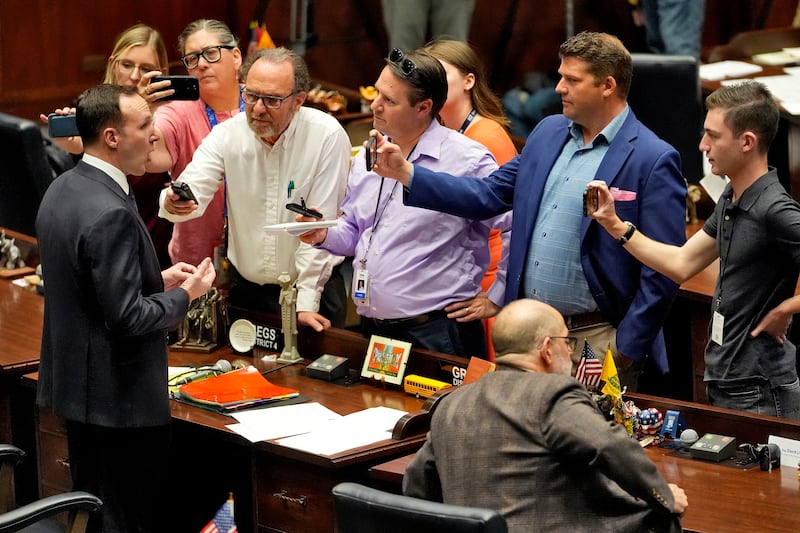A schoolgirl whose mother is facing prosecution for buying her abortion pills was taken from a classroom by police officers and spoken to about the alleged crime without her parents being present, a court has heard.
A barrister for the mother outlined the circumstances of the case as she urged judges in Belfast to rule that her looming prosecution is in contravention of human rights laws.
They were told the then 15-year-old girl was vulnerable and frightened amid alleged threats from her ex-boyfriend to harm both her and the unborn child.
It was also claimed the decision to bring criminal proceedings will have a "chilling effect" on others who find themselves in the same situation.
Granted anonymity, the mother and daughter are mounting a landmark legal challenge against the Public Prosecution Service's decision to charge the older woman over procuring an abortion.
She is facing a trial and could be jailed for up to five years if ultimately convicted.
Ahead of the hearing, anti-abortion and pro-choice campaigners gathered outside the High Court with placards and posters.
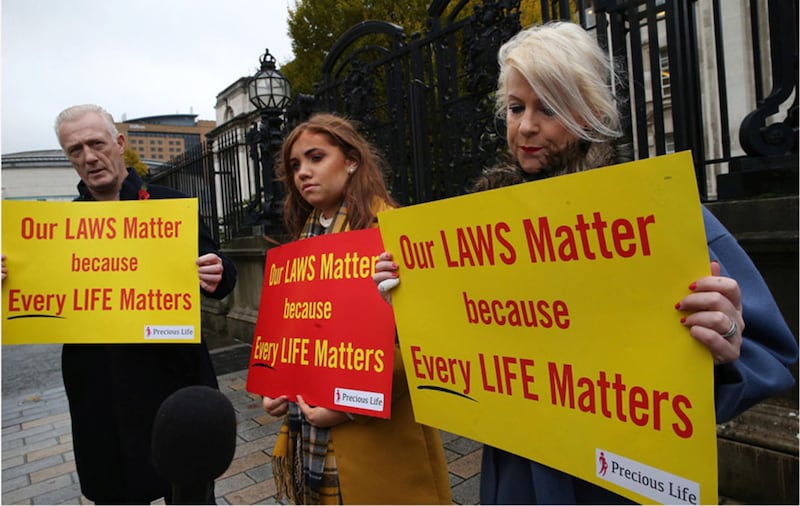
Unlike in Britain, terminations are only legal in Northern Ireland to protect the pregnant female's life or if there is a risk of serious damage to her well-being.
Earlier this year, however, the Supreme Court concluded abortion laws in the region in cases of rape, incest and fatal foetal abnormality are incompatible with human rights law.
Backed by Amnesty International, the mother has described being put put through "five years of agony".
In a statement outside the court, she said: "[The prosecution and looming judgment] is there at every important moment of my and my children's lives - just hanging over me.
"The fear and pain of it all. I feel like I am not allowed to move on."
In 2013, her daughter fell pregnant after being involved in a relationship which was said to be both physically and verbally abusive.
Feeling unable to travel to England for a termination, the mother purchased abortion pills online.
Read more:
- Sarah Ewart wins court permission to challenge Northern Ireland's abortion laws
- Westminster abortion reform supported by political leaders
- Women in north still using illegal abortion pill says study
She now faces two charges of unlawfully procuring and supplying drugs with intent to procure a miscarriage, contrary to the 1861 Offences Against the Person Act.
But according to the family's legal team, compelling the girl to continue with her pregnancy would have breached rights to protection from inhuman and degrading treatment.
And prosecuting her mother for enabling her to access medication to obtain an abortion also violated those entitlements and rights to privacy and family life, it was contended.
Further issues have been raised about the disclosure of information from a GP and child and adolescent mental health services as part of the police investigation and subsequence decision to bring charges.
Opening their application for judicial review, in a case known as JR76, Karen Quinlivan QC said: "At the heart of this case was a vulnerable child who found herself facing a crisis pregnancy in a jurisidiction which criminalises abortion in most cases."
Counsel contended that the daughter, at the age of 15, had been in a relationship with an ex-boyfriend who responded with abuse on learning of the pregnancy.
The court was told he allegedly threatened harm, leaving the girl in an increasingly emotionally fragile state.
Her mother, who witnessed some of the alleged abuse, pledged support and gave her time and space to consider all options: keeping the child, adoption and termination - either through obtaining pills or travelling to England for an abortion.
Ms Quinlivan set out how the girl decided against continuing with the pregnancy and set out her reasons.
"She was only 15, frightened by the prospect of being a mother (when) she was still a child herself," the barrister said.
At the time she was still at school, feared she would be unable to cope, and wanted to go on to university.
"She knew that would be extremely difficult as a single mother," Ms Quinlivan continued.
Further concerns centred on her ex-boyfriend remaining in her life as the child's father.
With the girl said to be unable to face the prospect of travelling to England for an abortion, her mother researched obtaining pills online.
The GCSE student went to a doctor a week after taking the abortion medication. She was subsequently referred to a mental health counselling service, which in turn informed social services. Social services then alerted the PSNI.
Ms Quinlivan said investigating police officers then arrived at the child's school and removed her from a classroom to speak to her in the absence of her parents.
"The prosecution will have a chilling effect on access to healthcare in these circumstances," she said.
Counsel for the PPS argued, however, that his client is not responsible for the content of the criminal law.
Tony McGleenan QC also stressed: "The public interest assessment is based on the prospect of a non-prosecution stance essentially validating the widespread use of these medications outside a clinical context."
With the case listed for a two-day hearing, Lord Chief Justice Sir Declan Morgan identified a potential conflict, based on the Supreme Court decision.
He pointed out: "Here you have a statute which, on the face of it, the PPS should be upholding by way of prosecution, and you have a child whose convention rights are going to be breached."
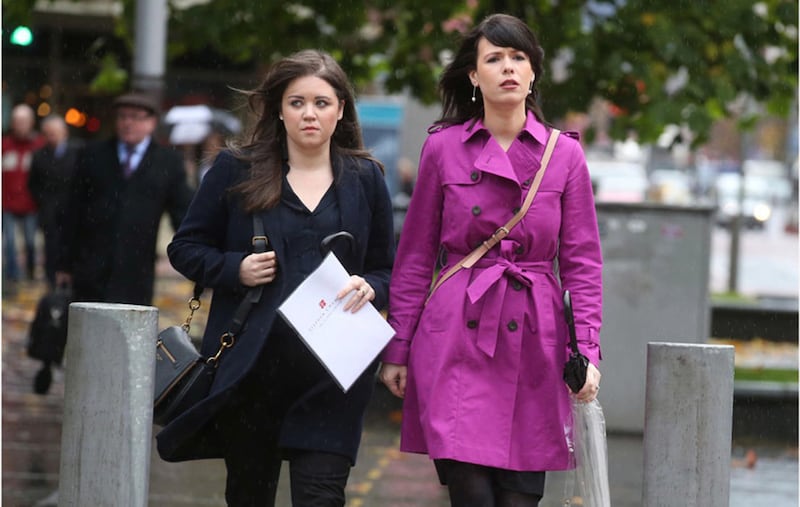
Outside the court, the mother's solicitor Jemma Conlon said the woman and her daughter had been forced to "constantly relive a traumatic and private family matter under the weight of this prosecution".
She added: "This has caused them immense distress and anguish which has been constant over the past five years."
Bernie Smyth, from anti-abortion group Precious Life, said: "We are here because our laws matter in Northern Ireland.
"We have a law that protects both the mother and the unborn child.
"Our laws must be upheld and we are hopeful that the judge will uphold the laws here in Northern Ireland."
The hearing continues today.
